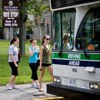Abstract
This resource is a two-part syllabus for SOCI2F60 Foundations for Community Engagement, a high enrolment, full credit Sociology course. The design of the course is a variation on service-learning, a model of teaching and learning in which students' academic studies enhance their community engagement and vice versa. The course combines academic...Download this resource to see full details. Download this resource to see full details.
Details
- Subject Area(s):
- Community
- Resource Type(s):
- Assessment, Assignment, Syllabus
- Class Level(s):
- Any Level
- Class Size(s):
- Any
Usage Notes
SOCI 2F60, Foundations for Community Engagement, is open to students in all programs and year levels. The first part of this two-part syllabus includes all the standard elements of a course syllabus such as the course description, learning goals, requirements, schedule of lectures and required readings. The second part is an overview of how learning is...Download this resource to see full details. Download this resource to see full details.
Learning Goals and Assessments
Learning Goal(s):
- Examine and critically analyze the various ways in which you might perform citizenship, engage in community-building, serve others, or act as a positive agent of change.
- Articulate your own vision for meaningful, ethical community engagement through reflecting on your academic study, personal growth and community involvement.
- Synthesize what you have learned from community participation and from scholarly activity. Develop effective ways to represent and communicate your knowledge and learning to others.
Goal Assessment(s):
- The first goal is assessed through short bi-weekly reflection assignments based on Ash and Clayton’s (2004, 2009) DEAL model: Describe an experience, Examine the experience in relation to an academic concept, and Articulate Learning.
- The second goal is assessed through participation in a small group seminar (tutorial) involving facilitated discussion focused on drawing connections between the academic course content and students' community involvement.
- The third goal is assessed through the creation of a digital portfolio of 8 to 10 revised written reflections, commentary on course readings, meta-reflections, and a visual icon representing a key learning.
When using resources from TRAILS, please include a clear and legible citation.


